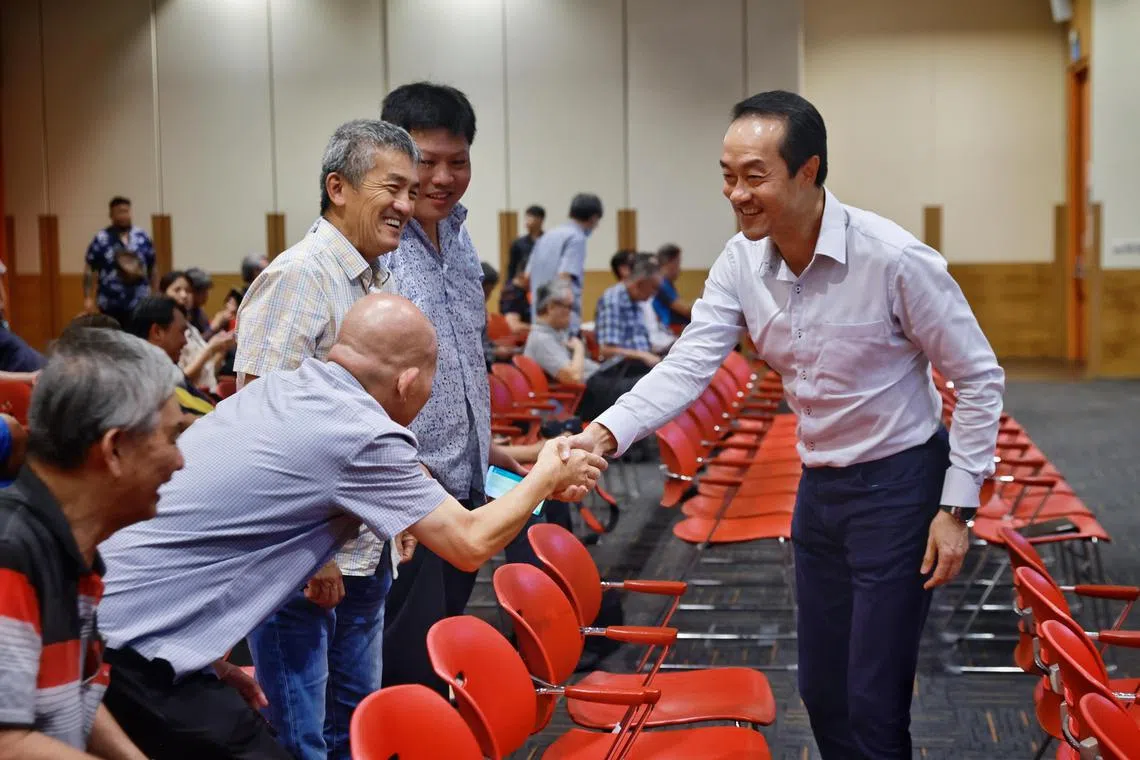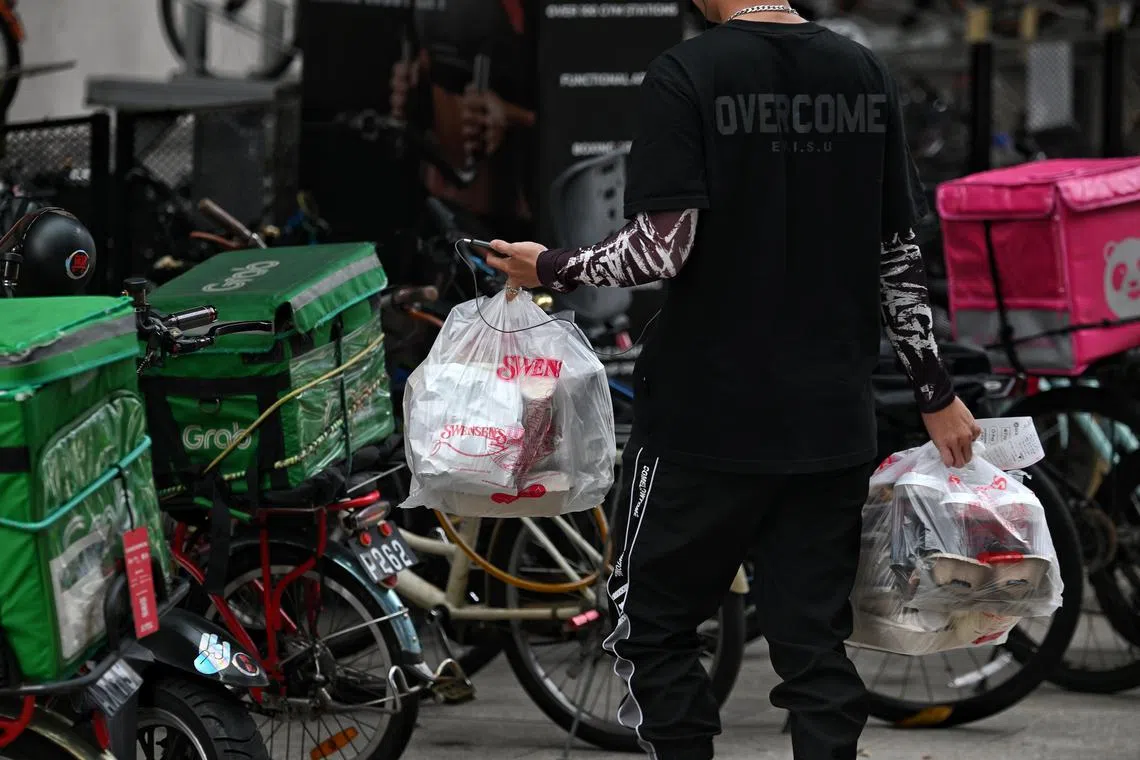More details on platform worker protections revealed
Sign up now: Get ST's newsletters delivered to your inbox

Senior Minister of State for Manpower Koh Poh Koon speaking with attendees prior to the dialogue with platform workers.
PHOTO: JASON QUAH
SINGAPORE - New policies that strengthen protections for platform workers
The Government had in November 2022 set a target to implement the new measures from the second half of 2024, after it accepted recommendations made by an advisory committee looking into these issues.
On Wednesday, Senior Minister of State for Manpower Koh Poh Koon gave an update on the implementation details at a dialogue with 120 platform workers at the Lifelong Learning Institute in Paya Lebar.
He said that for the purposes of work injury compensation, platform workers will be considered to be “at work” when they are picking up and dropping off passengers or items.
“If you get injured while finishing a delivery and walking back to your vehicle, you can still be covered,” he said. “Even the process of trying to get to the pickup point or get to the place of picking up the passenger – that can be still considered ‘at work’.”
It has also been decided that the compensation for income lost due to a work injury will be based on a platform worker’s average earnings in the relevant sector during the 90 days before the injury occurred, Dr Koh added.
As for CPF contributions, the Government is working with platform companies to develop a simple-to-use collection mechanism
A third area of focus is better representation for platform workers.
In this respect, the Ministry of Manpower on Wednesday accepted recommendations from a tripartite workgroup that workers’ interests could be championed by representative bodies with powers similar to trade unions.
In separate statements, platform companies Grab, ComfortDelGro, Foodpanda and Lalamove
Foodpanda said all parties need time to see how the new representative framework can be worked into daily operations. The company said it is also in active discussions with government agencies on how to implement CPF and work injury insurance, so that the final outcome is reasonable and effective for both workers and operators.
Singapore National Employers Federation executive director Sim Gim Guan said Wednesday’s news is a positive step for the long-term development of the platform sector here.
Beyond the discussions within the tripartite workgroup, the federation had also organised nine other engagement sessions with platform operators to better understand their needs and concerns, especially with regard to safeguarding their commercial interests.

Platform workers will be considered to be “at work” when they are picking up and dropping off passengers or items.
ST PHOTO: KUA CHEE SIONG
Mr Sim said: “Sometimes the negotiations were not easy as platform operators are genuinely concerned about the impact on their business model. Thus, one of the key principles to guide negotiations between representative bodies and platform operators is that platform operators need not divulge their proprietary information or negotiate on commercially sensitive matters.”
A food delivery worker, who wanted to be known only as Mr Tan, said it can be difficult to raise issues with platform operators, and he hopes this will change when bodies like the National Delivery Champions Association (NDCA) are legally empowered to negotiate with the platforms.
“Most of the time, when you raise a ticket through the platform app, they just close it without giving a proper reason,” said the 38-year-old.
Platform worker Malcolm Pang, 36, said if workers’ voices are heard at the government level and by platform operators, policies can be formulated that have their interests as a priority. “With representation, I think they will listen to us more,” he added.
NDCA president Goh Yong Wei said platform workers will get more bargaining power, but cautioned that this should not be abused.
The 31-year-old said platform operators have already listened to the concerns raised by the NDCA and worked with the association to address them, even when it did not have a mandate to formally represent delivery workers.
“It is about working in harmony... We cannot squeeze the platforms too hard because if they decide to close shop, we are going to have a lot of unemployment,” Mr Goh added.
Mr Ian Lim, head of employment and labour at TSMP Law Corporation, said collective representation for platform workers here could make a major difference in terms of how they are treated, as this group has little voice or bargaining power at the moment.
“All they can really do is vote with their feet and not work under a particular app or platform, and sometimes even doing that is difficult,” he added.
Mr Lim said one potential challenge is whether the representative bodies for platform workers can speak for such a diverse and disparate group of workers in the same way that trade unions do for employees, since unionised employees may be relatively more homogenous.
When negotiating memorandums of understanding and collective agreements with platform operators after the new laws kick in, platform worker representative bodies might also have their eye on terms that deal with how the various platforms assign jobs to workers, and how workers are paid and rewarded.
Mr Kelvin Tan, director and co-head of employment at Drew & Napier, said Singapore’s approach to platform worker representation provides a good alternative structure for peaceful collaboration.
As work models evolve, the recommendations also provide a structure that could be adapted to other forms of work that do not fit the definition of employment, he added.



